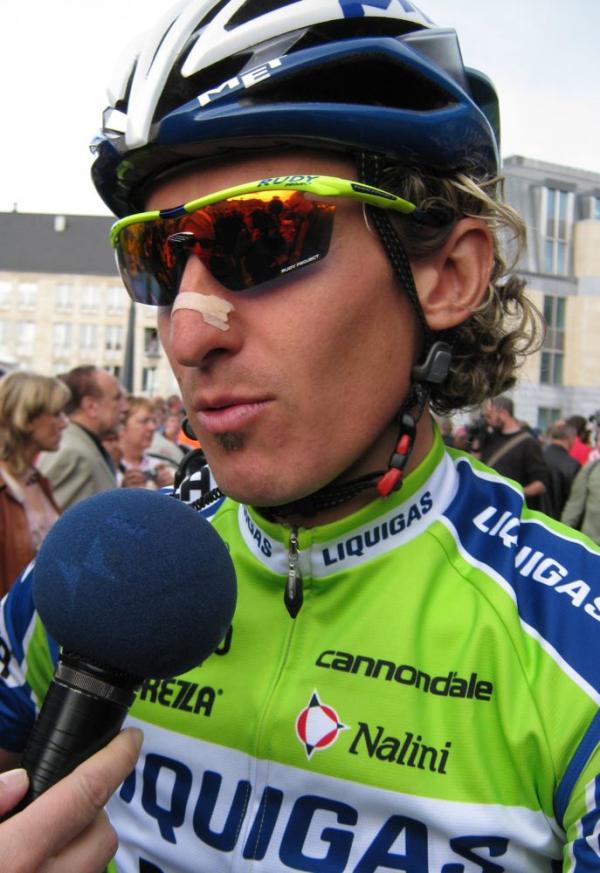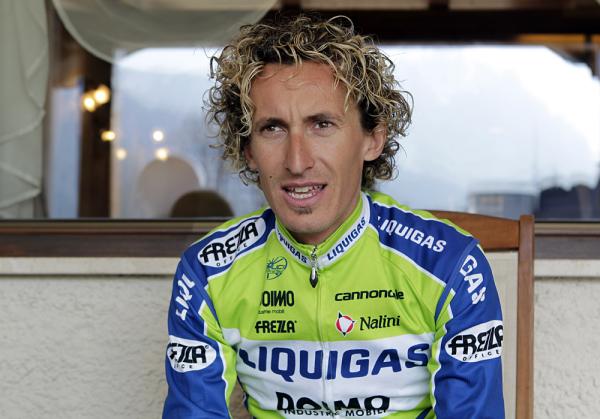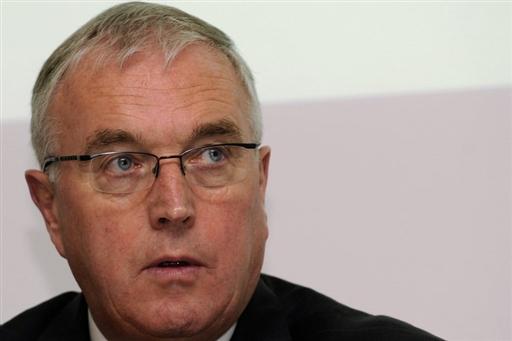Is the UCI's Biological Passport flawed?
Dutch expert Klaas Faber questions its science and legality



According to a scientist in the Netherlands, the UCI Biological Passport is flawed from both a legal and scientific stand point.
Klaas Faber, who has worked in analysing scientific data since the 1980s and worked for the Dutch Forensic Institute during the 1990s, believes that the UCI could face a string of contentious borderline cases like that of Franco Pellizotti, who was recently cleared of doping by the Italian Olympic Committee.
“The information they use in prosecution is incomplete,” Faber told Cyclingnews.
“They find one or two abnormal values and on the basis of what they see, they hypothesise and then confirm guilt based off the same data. If you base a suspicion on the same data that you use to prove the guilt, it’s an abuse of the data. You need independent data to confirm the hypothesis.”
As well as the Pellizotti case, Slovenia’s Tadej Valjavec was also allowed to race again in August after his national federation cleared him of a doping violation. Italy’s Pietro Caucchioli has also appealed to the Court of Arbitration for Sport against his two-year ban.
According to Faber, issues with the passport stem back to the 1990s. In 2007 an internal memo from within the anti-doping laboratory in Lausanne questioned the validity of the passport procedures.
“They’ll probably lose the Pellizotti case and as soon as people start recognising these things they see that the passport works to the disadvantage of the athletes and that the prosecution has a head start. That makes it legally untenable. This could be the end of the passport,” Faber said.
Get The Leadout Newsletter
The latest race content, interviews, features, reviews and expert buying guides, direct to your inbox!
“On a superficial level if you look at how they work with the numbers you can see that they plug numbers into software that overestimates the likelihood of guilt. It’s simplistic software. They ignore the fundamental issues and then even on a higher level they should work with all kinds of corrections and checks. But what they do is to the disadvantage of the athlete and that’s something that you can prove.”
“There are documents that asked for a review of this procedure as far back as 2006 and 2007 but the passport still went ahead even though a full review was promised. WADA are putting their trust in Lausanne and their scientists but what else can they do? They’re torturing the data until they get the result they want.”
Criticism of the expert panel
Part of Faber’s criticism is aimed at the doping panel that the UCI employs to sift through suspicious cases.
“They’re not statistical experts. They’ve been working in anti-doping for many years and that’s all they’ve done, looked at blood and urine samples. But if you describe this procedure to someone that’s worked in statistics, the best in the world, they would call it second rate and back room science. And say that it doesn’t stand up to levels in other fields.”
Faber believes that the passport could still have a future, even if its remit is changed. He suggests it could be used to provide health checks and a possible no-start rule, similar to the haematocrit tests the UCI used to carry out. In its current format, Faber believes that the passport encourages riders to dope.
“It’s an invitation to dope at an earlier age. The passport has been prepared since around 1997 so I’ve been looking at it for around 15 years and the riders have been able to adjust to the passport being introduced and that’s just an invitation. Not only is it unsafe to convict someone it invites doping. Technically it’s not up to standards but there’s also a lack of vision.”
“I think there’s been a decrease in doping but I don’t think the solution can be found in a lab. It’s in the culture of cycling where you’ll find it and teams have to find against it, not the people in lab.”
McQuaid sides with the WADA experts
“People will have plenty of opinions but the thing about people having opinions is that they don’t know or understand the biological passport or how it works,” McQuaid said.
“I don’t understand it all because I’m not involved on a daily basis but I understand the fundamentals of it. A lot of people give opinion on their belief but that might not be way in which things work. I’ll go with the WADA legal experts as to whether it’s flawed or not.”
Daniel Benson was the Editor in Chief at Cyclingnews.com between 2008 and 2022. Based in the UK, he joined the Cyclingnews team in 2008 as the site's first UK-based Managing Editor. In that time, he reported on over a dozen editions of the Tour de France, several World Championships, the Tour Down Under, Spring Classics, and the London 2012 Olympic Games. With the help of the excellent editorial team, he ran the coverage on Cyclingnews and has interviewed leading figures in the sport including UCI Presidents and Tour de France winners.
